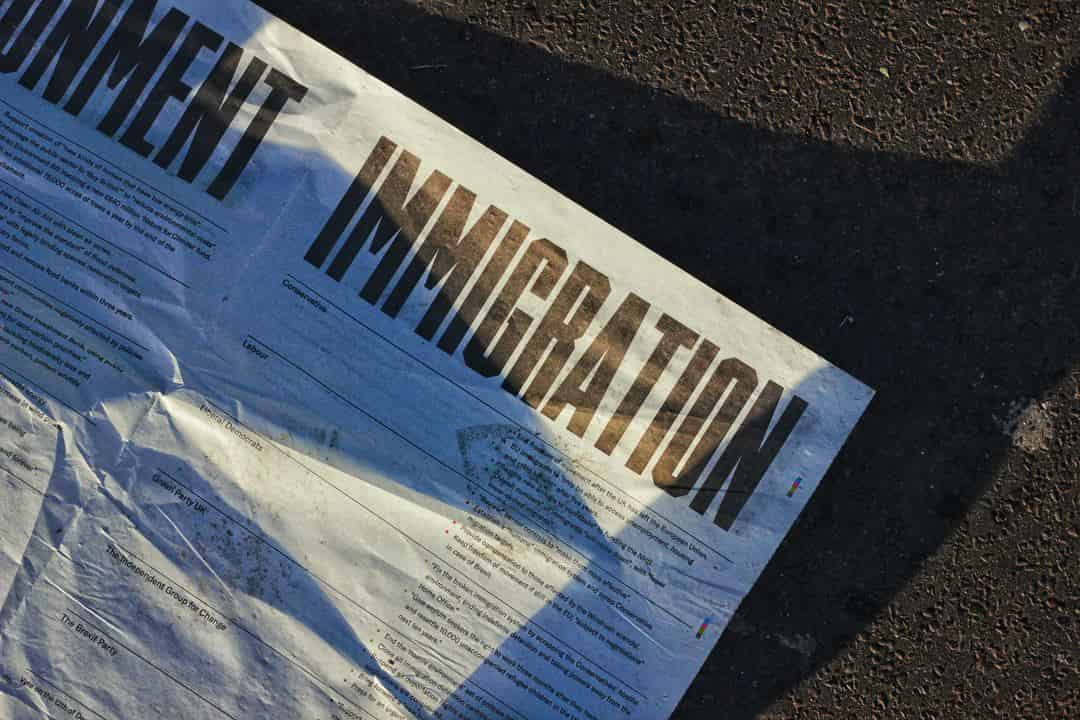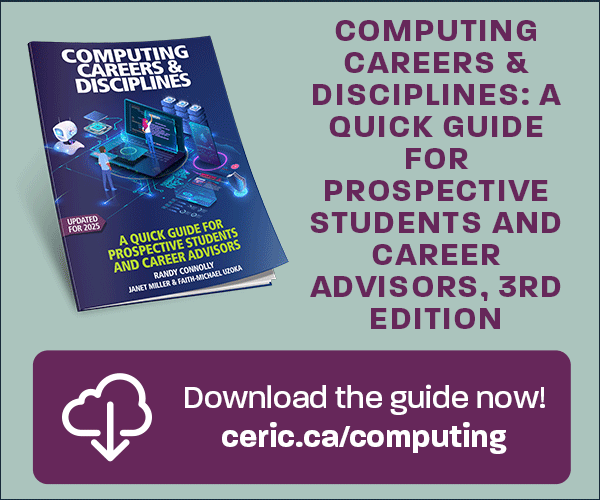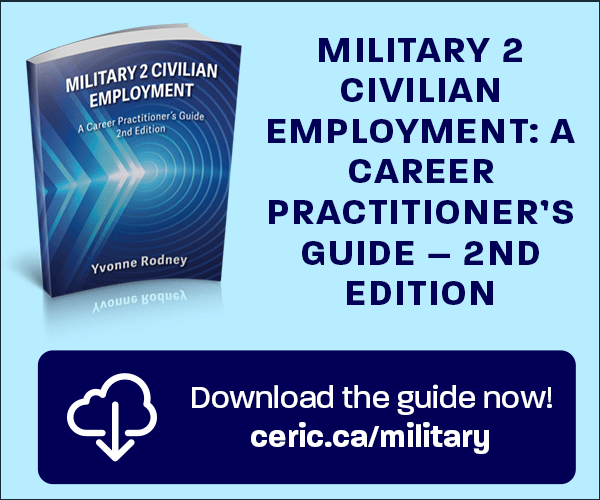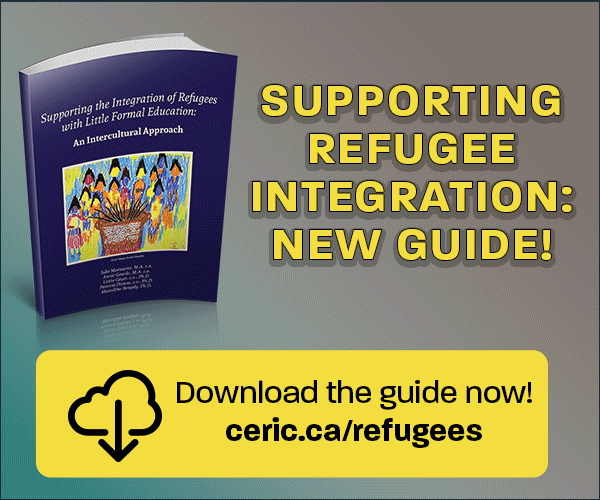Restoring Hope: Responding to Career Concerns of Immigrant Clients
Keywords:
hope, career, career concerns, immigrant, clientsAbstract
Immigrants, whose career path is often different from the one described in traditional career theory, compose a large portion of the work force. As a result, a modified career theory and career counseling strategies that respond to this population’s specific circumstances are needed. In this paper, issues in immigrant career transition are described, including barriers that interfere with the transition process and factors that contribute to its success. Immigrants
face many intra-individual, relational, and contextual level barriers along with challenges of cultural adaptation. Successful transition relies on factors within
the individual, such as adaptability and hardiness, and also on relational and systemic supports, such as family, language programs, and government sponsored organizations. Suggestions for counselling practice are offered, derived from a multileveled interactive conceptual framework. Interventions tailored to address individual, relational and contextual levels are presented, with an emphasis on social justice interventions that are seldom discussed in psychological literature. The author presents a part of her own experience to illustrate the issues.
References
Amundson, N. E., Harris-Bowlsbey, J. & Niles, S. G. (2009). Essential elements of career counseling: Processes and techniques (2nd ed.). Upper Saddle River, NJ: Pearson Education.
Amundson, N., Westwood, M. & Prefontaine, R. (1995). Cultural bridging and employment counselling with clients from different cultural background. Canadian Journal of Counselling, 29(3), 206-213.
Amundson, N. E., Yeung, T., Sun, I., Chan, K. & Cheng, J. (2011). The transition experiences of successful Chinese immigrants. Journal of Employment Counselling, 48,
-135.
Asanin Dean, J. & Wilson, K. (2007). ‘Education? It is irrelevant to my job now. It makes me very depressed’: exploring the health impacts of under/unemployment
among highly skilled recent immigrants in Canada. Ethnicity and Health, 14(2), 185- 204
Asanin Dean, J. & Wilson, K. (2007). ‘Education? It is irrelevant to my job now. It exploring the health impacts of under/unemployment among highly skilled recent
immigrants in Canada. Ethnicity and Health, 14(2), 185-204.
Aycan, Z & Berry, J. W. (1996). Impact of employment-related experiences on immigrants’ psychological well-being and adaptation to Canada. Canadian Journal of
Behavioural Science, 28(3), 240-251.
Bauder, H. (2003). “Brain abuse” or the devaluation of immigrant labour in Canada. Antipode, 35(4), 699-717.
Berry, J. W. (1997). Immigration, acculturation and adaptation. Applied Psychology: An International Review, 46(1), 5-68.
Bhatia, S. & Ram, A. (2009). Theorizing identity in transnational and diaspora cultures: A critical approach to acculturation. International Journal of Intercultural Relations, 33, 140-149.
Blustein, D. L. (2001). Extending the reach of vocational psychology: Toward an inclusive and integrative psychology of working. Journal of Vocational Behavior, 59, 171–182. doi:10.1006/jvbe.2001.1823.
Blustein, D. L., McWhirter, E. H., & Perry, J. C. (2005). An emancipatory communitarian approach to vocational development: Theory, research, and practice. The Counseling Psychologist, 33, 141-179.
Blustein, D., Palladino, D. E., Schultheiss, D. E. P., & Flum, H. (2004). Toward a relational perspective of the psychology of careers and working: A social constructionist analysis. Journal of Vocational Behaviour, 64, 423-440.
Borgen, W.A., Amundson, N.E., & Reuter, J. (2004). Using portfolios to enhance career resilience. Journal of Employment Counseling , 41, 50-59.
Bronfenbrenner, U. (1979). The Ecology of Human Development: Experiments by Nature and Design. Cambridge, MA:Harvard University Press.
Brott, P. E. (2004). Constructivist assessment in career counselling. Journal of Career Development, 30(3), 189-200.
Campbell, C., & Ungar, M. (2004). Constructing a life that works: Part 2, An approach to practice. The Career Development Quarterly, 53, 28-40.
Chen, C. P. (2008). Career guidance with immigrants. In J.A. Athanasou & R. Van Esbroeck (Eds.) International Handbook of Career Guidance, (pp. 419-442). New
York: Springer Publishing Company.
Fazel, M., Wheeler, J., & Danesh, J. (2005). Prevalence of serious mental disorder in 7000 refugees resettled in western countries: a systematic review. The Lancet,
,1309-1314.
Flores, L. Y., Hsieh, C. & Chiao, H. (2011). Vocational psychology and assessment with immigrants in the United States: Future directions for training, research, and practice. Journal of Career Assessment, 19(3), 323-332.
Flores, L. Y., Mendoza, M. M., Ojeda, L., He, Y., Meza, R. R., Medina, V., Wagner Ladehoff, J. & Jordan, S. (2011). A qualitative inquiry of Latino immigrants’ work
experiences in the Midwest. Journal of Counseling Psychology, 58(4), 522-536.
Hansen, S. S. (2003). Career counsellors as advocates and change agents for equality. Career Development Quarterly, 52, 43-53.
Hartung, P. J. & Blustein, D. L. (2002). Reason, intuition, and social justice: Elaborating on Parson’s career decision making model. Journal of Counseling and Development, 80(1), 41-47.
Holland, J. L. (1997). Making vocational choices (3rd ed.). Odessa, FL: Psychological Assessment Resources, Inc.
Ishiyama, F. I. (1989). Understanding foreign adolescents’ difficulties in cross-cultural adjustment: A self-validation model. Canadian Journal of School Psychology, 5, 41-56.
Ishiyama, F. I. (1995). Culturally dislocated clients: Self-validation and cultural conflict issues and counselling implications. Canadian Journal of Counselling, 29(3), 262-275.
Jackson, M. A., Kacanski, J. M., Rust, J. P. & Beck, S. E. (2006). Constructively challenging diverse inner-city youth’s beliefs about educational and career barriers and
supports. Journal of Career Development, 32(3), 203-218.
Koert, E., Borgen, W. A. & Amundson, N. E. (2011). Educated immigrant workers doing well with change: Helping and hindering factors. The Career Development Quarterly, 59, 194-207.
Krumboltz, J. D. (1993). Integrating career and personal counseling. The Career Development Quarterly, 42, 143-148.
Lazarus, R. S., & Folkman, S. (1984). Coping and adaptation. In W. D. Gentry (Ed.), Handbook of behavioral medicine. New York: The Guilford Press.
Lee G. & Westwood, M. J. (1996). Cross-cultural adjustment issues faced by immigrant professionals. Journal of Employment Counselling, 33, 29-42.
Leong, F. T. & Serafica, E. (1995). Career development of Asian Americans: A research in need of a good theory. In F. T. Leong (Ed.), Career development and vocational behavior of racial and ethnic minorities (pp. 67-102). Hillsdale, NJ: Erlbaum.
Ma, P. W. & Yeh, C. J. (2010). Individual and familial factors influencing the educational and career plans of Chinese immigrant youths. The Career Development
Quarterly, 58, 230-245.
McIlveen, P., McGregor-Bayne, H., Alcock, A., & Hjertum, A. (2003). Evaluation of a semi-structured career assessment interview derived from systems theory framework. Australian Journal of Career Development, 12(3) 45-56.
McMahon, M., & Patton, W. (2002). Using qualitative assessment in career counselling. International Journal for Educational and Vocational Guidance, 2, 51-66.
McMahon, M., & Patton, W. (2006). The systems theory framework: A conceptual and practical map for career counselling. In M. McMahon, W. Patton & V. Patton
(Eds), Career counselling: Constructivist approaches (pp. 94-109). New York:Routledge.
Mock, M. R. (1998). Clinical reflections on refugee families: Transforming crises into opportunities. In M. McGoldrick (Ed.), Re-visioning family therapy: Race, culture
and gender in clinical practice. New York: the GuilfordPress.
Neault, R. A. (2006). Managing Global Careers: Challenges for the 21st Century. International Journal for Educational and Vocational Guidance, 5, 149-161. DOI 10.1007/s10775-005-8796-z.
Niles, S. G., Amundson, N. E. & Neault, R. A. (2011). Career flow: A hope centered model of career development. Upper Saddle River, NJ: Pearson Education.
Oberg, K. (1960). Culture shock: adjustment to new cultural environments. Practical Anthropology, 4, 177-182.
Pope, M., Cheng, W. D. & Leong, F. T. (1998). The case of Chou: The inextricability of career to personal and social issues in a multicultural context. Journal of Career
Development, 25(1), 53-64.
Pryor, R. & Bright, J. (2009). Game as a career metaphor: A chaos theory career counselling application. British Journal of Guidance and Counselling, 37(1), 39-50.
Richardson, M. S. (in press). A critique of career discourse practices. In P. Mcilveen & D. P. Schultheiss (Eds.), Social constructionism in vocational psychology and career development. Rotterdam: Sense Publishers.
Savickas, M.L., et al. (2009). Life designing : A paradigm for career construction in the21st century. Journal of Vocational Behaviour, 75, 239-250.
Stableton, M. J. (2007). Career Counseling with African immigrant college students: Theoretical approaches and implications for practice. Career Development Quarterly, 55, 290-312.
Super, D. E. (1980). A life-span, life-space approach to career development. Journal of Vocational Behavior, 16, 282-298.
Super, D. E. (1993). The two faces of counseling: Or is it three? The Career Development Quarterly, 42, 132-136.Waldegrave, C. (2005). “Just therapy” with families on
low incomes. Child Welfare, 84(2), 265-276.
Wampold, B. E. (2001). The great psychotherapy debate: Models, methods, and findings. Mahwah, NJ: Erlbaum.
Westwood, M.J., & Ishiyama, F.I. (1991). Challenges in counseling immigrant clients: Understanding intercultural barriers to career adjustment. Journal of Employment Counseling, 28, 130-143.
Yakushko O., Backhaus, A., Watson, M., Ngaruiya, K. & Gonzalez, J. (2008). Career development concerns of recent immigrants and refugees. Journal of Career
Development, 34(4), 362- 396. DOI:10.1177/0894845308316292.
Yakushko, O. & Chronister, K. M. (2005). Immigrant women and counseling: The invisible others. Journal of Counseling and Development, 83(3), 292-298.
Yakushko, O., Watson, M. & Thompson, S. (2008). Stress and coping in the lives of recent immigrants and refugees: Considerations for counseling. International
Journal for the Advancement of Counselling, 30, 167-178. DOI 10.1007/s10447-008-9054-0.
Yeh, C. H., Kim, A. B., Pituc, S. T. & Atkins, M. (2008). Poverty, loss and resilience: The story of Chinese immigrant youth. Journal of Counseling Psychology, 55(1),
-48.
Yost, A. D. & Lucas, M. S. (2002). Adjustment issues affecting employment for immigrants from the former Soviet Union. Journal of employment Counseling, 39, 153-170.

Published
How to Cite
Issue
Section
License

This work is licensed under a Creative Commons Attribution-NonCommercial-NoDerivatives 4.0 International License.
















